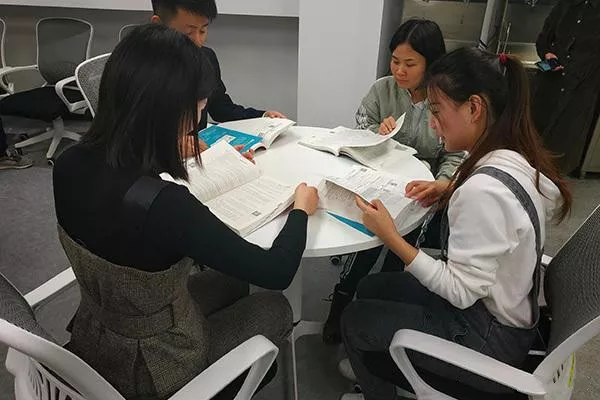Relationships are foundational to human experience, influencing our happiness, mental health, and overall well-being. Whether romantic, platonic, or familial, understanding the basics of a relationship is crucial for building and maintaining healthy connections. This article explores the fundamental elements that constitute successful relationships, the dynamics involved, and practical tips for fostering strong bonds.
Understanding Relationships
At their core, relationships involve a dynamic interplay between individuals, characterized by emotional, social, and sometimes physical connections. Each relationship is unique, shaped by the personalities and experiences of those involved. However, certain universal principles can guide the development and maintenance of healthy relationships.
The Fundamental Elements of Relationships
Communication
Effective communication is the cornerstone of any healthy relationship. It encompasses not just the exchange of words, but also nonverbal cues such as body language, tone of voice, and facial expressions. Open, honest dialogue fosters trust and understanding.
Trust
Trust forms the bedrock of a strong relationship. It is built over time through consistent actions, reliability, and vulnerability. Without trust, individuals may feel insecure and anxious, which can hinder relationship development.
Respect
Mutual respect is essential for any relationship to thrive. This means valuing each other’s opinions, boundaries, and individuality. Disrespect can lead to resentment and conflict, undermining the relationship’s foundation.
Support
Providing and receiving support is a vital aspect of relationships. This includes emotional support during difficult times, encouragement in personal goals, and active listening. Being there for one another strengthens bonds and fosters resilience.
Quality Time
Spending quality time together helps deepen connections. Whether through shared activities, meaningful conversations, or simply enjoying each other’s presence, prioritizing time together is crucial for relationship growth.
Conflict Resolution
Disagreements are a natural part of any relationship. How these conflicts are handled can make or break the connection. Healthy conflict resolution involves addressing issues constructively, focusing on solutions rather than blame.
Intimacy
Intimacy extends beyond physical closeness; it also encompasses emotional vulnerability and connection. Sharing thoughts, feelings, and experiences fosters a deeper bond between individuals.
Types of Relationships
Relationships can be categorized into various types, each with its own dynamics and expectations. Understanding these categories can help individuals navigate their connections more effectively.
Romantic Relationships
These relationships involve emotional and physical intimacy. They often include a commitment to one another, which can manifest in various forms, such as dating, cohabitation, or marriage.
Friendships
Friendships are characterized by mutual affection and support without romantic involvement. They often provide a sense of belonging and community.
Familial Relationships
These relationships are typically based on biological or legal ties. They can be complex, often influenced by shared history and cultural factors.
Professional Relationships
Interactions within a work environment can range from collegial to hierarchical. Professional relationships are essential for teamwork, collaboration, and career development.
Acquaintanceships
These are casual relationships characterized by limited interaction. Acquaintances may share common spaces, such as neighborhoods or workplaces, but lack deeper emotional ties.
The Role of Emotional Intelligence
Emotional intelligence (EI) plays a significant role in the success of relationships. It involves the ability to recognize, understand, and manage one’s own emotions and the emotions of others. High EI can lead to better communication, empathy, and conflict resolution, which are essential for maintaining healthy relationships.
Self-Awareness
Understanding one’s own emotions, triggers, and responses is vital. Self-aware individuals are better equipped to navigate their feelings and communicate effectively.
Empathy
The ability to empathize with others enhances relational dynamics. Empathetic individuals can understand their partner’s perspectives and feelings, fostering deeper connections.
Self-Regulation
Managing emotions, especially in stressful situations, is crucial for effective communication and conflict resolution. Individuals who can regulate their emotions are less likely to react impulsively.
Social Skills
Good social skills facilitate healthy interactions and relationship-building. This includes effective communication, active listening, and the ability to resolve conflicts amicably.
See Also: What Are Fake Friends Like?
Building Healthy Relationships
Creating and nurturing healthy relationships requires effort and intentionality. Here are some strategies to consider:
Practice Active Listening
Listening attentively to your partner or friend without interrupting fosters a sense of understanding and validation. Reflecting back what you’ve heard can further demonstrate your engagement.
Set Boundaries
Healthy relationships respect individual boundaries. Communicating your limits and respecting others’ boundaries is essential for maintaining mutual respect.
Engage in Open Dialogue
Regularly check in with each other about feelings, needs, and expectations. Open dialogue encourages transparency and helps prevent misunderstandings.
Cultivate Shared Interests
Engaging in activities you both enjoy can strengthen your bond. Whether it’s a hobby, a sport, or a shared goal, cultivating shared interests fosters connection.
Express Appreciation
Regularly expressing gratitude and appreciation reinforces positive feelings within the relationship. Small gestures of kindness can go a long way in strengthening bonds.
Manage Expectations
Understand that no relationship is perfect. Managing expectations and accepting imperfections can help mitigate disappointment and frustration.
Prioritize Conflict Resolution
When conflicts arise, approach them with a problem-solving mindset. Focus on understanding the other person’s perspective and finding a resolution that works for both parties.
Recognizing Toxic Relationships
Not all relationships are healthy, and recognizing signs of toxicity is essential for mental well-being. Common indicators of toxic relationships include:
Constant Criticism
Frequent criticism can erode self-esteem and create an environment of negativity. Constructive feedback is essential, but it should not overshadow positive interactions.
Lack of Support
In a healthy relationship, individuals should feel supported in their endeavors. A lack of encouragement or dismissive behavior can be detrimental.
Manipulation and Control
Manipulative behaviors, such as guilt-tripping or controlling actions, are red flags. Healthy relationships are built on mutual respect and autonomy.
Disrespect and Neglect
Consistent disrespect, whether through insults or neglecting one’s needs, undermines the foundation of a healthy relationship.
Fear and Intimidation
Relationships should never involve fear. If one partner feels intimidated or fearful of the other, it’s essential to seek help and consider ending the relationship.
When to Seek Help
Sometimes, relationships encounter difficulties that require external support. Here are instances when seeking help may be beneficial:
Persistent Conflict
If conflicts remain unresolved and escalate, it may be time to seek professional help, such as couples therapy or counseling.
Communication Breakdowns
Difficulty expressing feelings or communicating effectively can hinder relationship progress. A therapist can facilitate better communication strategies.
Emotional Distress
If the relationship is causing significant emotional distress, it’s essential to address these feelings. Therapy can provide tools for coping and decision-making.
Significant Life Changes
Major life transitions, such as marriage, parenthood, or job changes, can strain relationships. Seeking guidance during these times can help navigate challenges.
Conclusion
Understanding the basics of a relationship is crucial for fostering meaningful connections. By focusing on communication, trust, respect, and support, individuals can build and maintain healthy relationships that enhance their lives. Recognizing the signs of toxicity and knowing when to seek help are equally important for safeguarding one’s mental well-being.
Ultimately, relationships are dynamic and require continuous effort and commitment. By investing in these fundamental elements, individuals can create lasting bonds that enrich their personal and social lives.
Related topics:




























